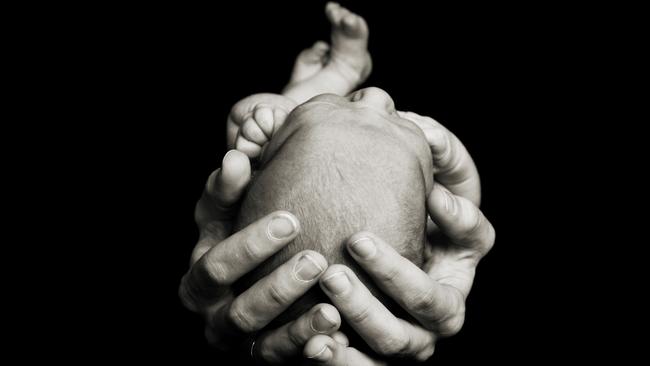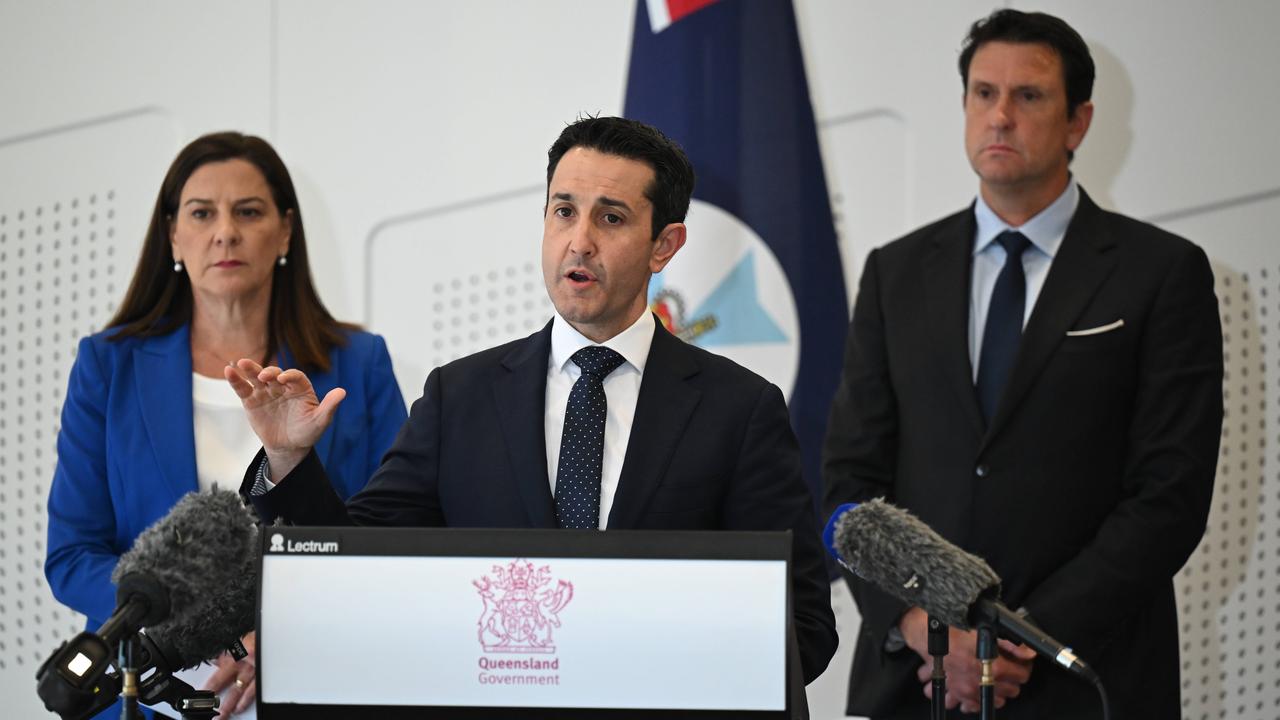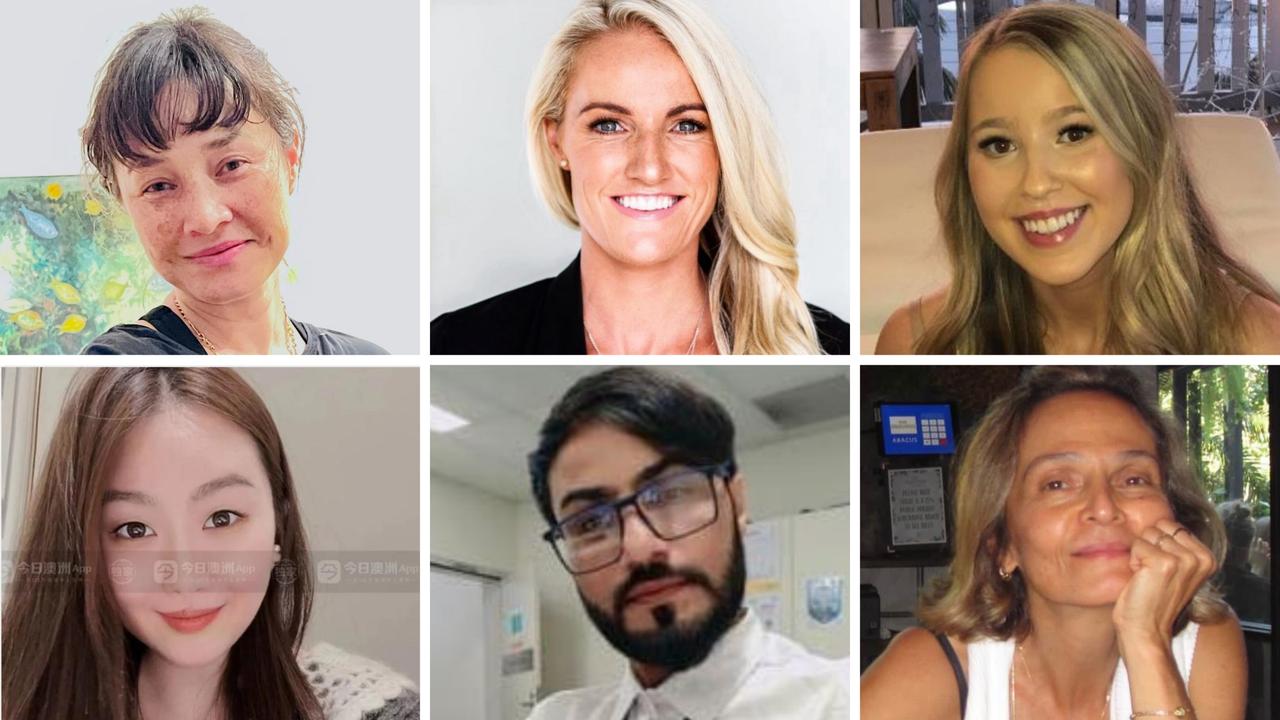‘Unethical conversion therapy’ to help kids feel more comfortable in their bodies: RCH gender clinic
It’s unethical to help children feel more comfortable with their biological sex, says gender clinic.

It’s unethical to help children feel more comfortable with their biological sex and akin to trying to “cure” a gay man of homosexuality, according to Australia’s busiest youth gender clinic.
The clinic at the Royal Children’s Hospital in Melbourne was defending itself in the British Medical Journal from criticism over its long-term study, called Trans20, of “gender affirmative” care, a worldview in which children are “experts” on their “gender identity”, even when this is at odds with their biology.
Meanwhile, global debate about this medical topic is intensifying, with the UK Health Minister for Patient Safety, Suicide Prevention and Mental Health, Nadine Dorries, who trained as a nurse, hailing Friday’s Times newspaper expose on controversial “trans” puberty blocker drugs as a “lone voice of reason”.
And in Germany, the Ethics Council straddling science and society last week called for urgent inquiry into why so many teenage girls are seeking medical treatment for being “born in the wrong body”, and raised questions about the capacity of children to consent and time pressure on the decision to take puberty blockers, which can start as young as 10 years of age.
A group of concerned parents welcomed the council’s statement but said it failed to come to grips with the possible role of social contagion via online platforms and school friendship groups, and ignored the emergence of regretful young adult “detransitioners”.
There are already reviews or inquiries into trans youth medicine in Australia, Brazil, Sweden and the UK.
‘Life-saving treatment’
Affirmative gender clinics say puberty blocker drugs, followed by cross-sex hormones and sometimes surgery, such as double mastectomy, are “life-saving” transformations of the body for suicidal young people whose gender was wrongly “assigned at birth”, but these treatments bring side-effects including infertility, impaired sexual function, dependence on the health system and unknown long-term risks.
In December, BMJ Open ran a letter from six Australian psychiatrists stating “grave reservations” about the ethics and science of the Trans20 study, which potentially involves 600 RCH patients aged 3-17 with gender dysphoria, or distress about their biological sex.
The psychiatrists argued that the RCH approach, which offers no alternative therapy to pro-trans affirmative treatment, could lock children in to gender dysphoria, when past overseas studies showed the vast majority of pre-school onset cases of this condition simply recovered — or “desisted” — as they matured, with many emerging as gay and lesbian adults feeling at home in healthy bodies.
This “desistance research” is a key topic in the international debate about the ethics and safety of pro-trans affirmative medical treatment for an unprecedented surge of teenage-onset dysphoria cases, mainly girls and many with mental illness, autism, suppressed same-sex attraction or family problems.
In their BMJ Open reply this month, the Trans20 research team attacked the best known source of these “desistance” studies, the Toronto clinic run until 2015 by the Canadian psychologist Ken Zucker, a world authority of gender dysphoria and a sceptic of the affirmative treatment approach.
“A key aim of that clinic was to ‘help children feel more comfortable with their biological sex’, which led to suggestions that it was practising ‘conversion therapy’,” says the Trans 20 team, which includes RCH clinic director paediatrician Michelle Telfer and Murdoch Children’s Research Institute biomedical researcher Ken Pang.
RCH and MCRI did not reply when asked if there were any circumstances in which the clinic might see it as ethical to help a young person with gender dysphoria become more comfortable in the body they were born with.
Conversion therapy normally conjures up images from the past of coercive, sometimes torture-like attempts to undo the fixed sexual orientation of gay adults, but the affirmative model extends this term to competing, more cautious clinical responses to gender dysphoria in minors.
“Why it is ‘unethical’ to engage in psychotherapeutic exploration with a child to understand why they are experiencing gender dysphoria?,” said Dr Zucker, whose expertise saw him appointed by the American Psychiatric Association to chair the group that redefined the disorder now known as gender dysphoria in 2013.
He said the term conversion therapy in the RCH reply was “a rhetorical sleight of hand — it is nothing more than pure dogma to make these kinds of statements”.
Australia’s first attempt to criminalise conversion therapy, using this trans-tweaked definition, has misfired after heavy criticism of a draft law in Queensland.
Sex researcher Ray Blanchard, another veteran psychologist from the Toronto clinic, joined the online debate about the Queensland project, saying: “Conversion therapy laws are Trojan Horses, ostensibly about banning attempts to change sexual orientation in adults, actually about banning therapy to help gender-dysphoric children and youth become comfortable with their anatomic sex”.
Dr Zucker argues parents should be warned that the early “social transition” (living as the opposite sex with new names and clothes) favoured by the affirmative clinics, Safe Schools-type programs and the trans activist lobby is more likely to direct children with gender dysphoria down the path to medical intervention.
He says early social transition, represented as risk-free by affirmative clinicians, is in fact “a new form of psychosocial treatment” of children whose identities are still malleable before puberty.
He has called for urgent research to determine whether or not the atypical teenage dysphoria will show the high spontaneous recovery rates seen with early-onset cases.
This is one of the stated aims of the RCH Trans20 study, although it does not include an alternative to the social or medical phases of affirmative treatment that would allow a comparison of outcomes.
Advocates of the affirmative model insist children as young as three years of age know the “inner truth” of their gender identity, and imply that any questioning amounts to a traumatising and “transphobic” rejection.
Critics say this discourages inquiry into causes and problems underlying gender dysphoria, or what appears on the surface to be that condition.
Gender clinics say their exploding caseload reflects greater social acceptance of trans identity, and more awareness of new treatment options, and reject the suggestion of parallels between gender dysphoria and anorexia.
The contentious 2018 RCH clinical guidelines for gender dysphoric youth refer to sex being “assigned at birth”, as opposed to the familiar idea that those in the maternity ward merely observe signs of the sex determined at conception.
A recent academic paper claims it is “intrinsically violent” to make a legal record of sex or gender on birth certificates because it is part of society’s effort to force bodies into “sexually dimorphic” — or biologically binary — categories.
This could be remedied “by eliminating the public registration of gender/sex”, suggests researcher Lena Holzer who looked at how Australian states and territories handle birth certificates for her November 2019 article in the Australian Feminist Law Journal.
The RCH reply in BMJ Open takes its psychiatrist critics to task for invoking research from Dr Zucker’s “controversial gender clinic in Toronto that was shut down by Canadian health authorities in 2015”.
The Melbourne researchers do not mention that the shut down followed a whispering campaign by trans activists and a report coloured by critics of the clinic with factual errors, unverified anonymous allegations and a false claim that Dr Zucker had called a patient “a hairy little vermin”.
“After I was ‘walked the plank’, I filed three lawsuits,” said Dr Zucker, who feels “vindicated” by a 2018 settlement with a payout of $586,000 ($A669,537) and a public apology from Toronto’s Centre of Addiction and Mental Health, which had dismissed him and published the uncorrected report the same day he was shown it.
Founded in 1975 by the distinguished child and adolescent psychiatrist Susan Bradley, the Toronto Gender Identity Clinic was internationally known for its cautious, developmental approach and saw about 1250 young people over 40 years.
In their BMJ Open reply, the RCH team say only a minority of patients at their Melbourne clinic get medical interventions, “reflecting the highly individualised approach to care”.
They cite unpublished data from 2007-16 that 23 per cent of patients were given puberty blockers and “an even lower figure of 20 per cent” were on cross-sex hormones.
RCH did not reply to a request for more recent and detailed statistics.
Dr Pang’s MCRI web page acknowledges “a lack of good research data to inform clinical practice” when treating young people with gender dysphoria.
The Australian sought comment from CAMH in Toronto and Ms Holzer.



To join the conversation, please log in. Don't have an account? Register
Join the conversation, you are commenting as Logout